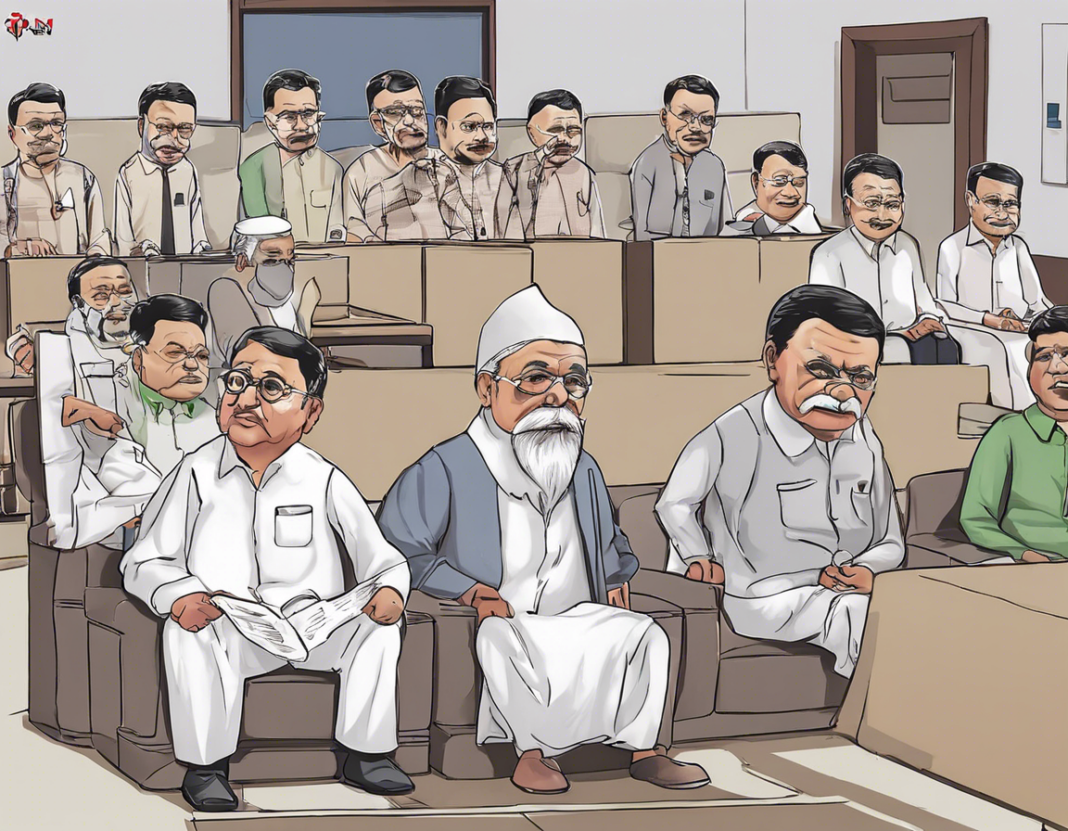Introduction
In the realm of Indian politics, one cannot ignore the crucial aspect of party defections and floor-crossing. These political maneuvers can significantly impact the stability of the government and raise questions about ethics and principles in democratic governance. To address this issue, the Anti-Defection Law was enacted in India to curb defection and prevent political opportunism.
History and Background
The Anti-Defection Law, formally known as the Tenth Schedule of the Indian Constitution, was inserted in 1985 through the fifty-second amendment by the Rajiv Gandhi government. The main objective of this law was to combat the issue of party defections and to uphold the sanctity of party democracy and stability in the government.
Key Provisions of the Anti-Defection Law
The Anti-Defection Law disqualifies elected members of legislatures if they defect from their party or violate the provisions laid down in the Tenth Schedule. Some of the key provisions of the law include:
1. Disqualification: A member of a house belonging to any political party is liable to be disqualified if they voluntarily resign from their party or violate the party whip on a vote.
2. Power to Decide: The decision on disqualification is in the hands of the Speaker/Chairman of the house, whose decision is final and cannot be questioned in any court.
3. Exemptions: There are certain circumstances under which defection is not considered valid, such as in cases of a split in the party, merger of political parties, etc.
4. Timeframe: The law sets a timeframe within which the Speaker/Chairman must decide on disqualification proceedings to prevent any undue delay.
5. Judicial Review: The decisions of the Speaker/Chairman can be challenged in the High Court and Supreme Court through judicial review.
Challenges and Criticisms of the Anti-Defection Law
While the Anti-Defection Law was enacted with good intentions, it has faced several criticisms and challenges over the years. Some of the key criticisms include:
1. Discretion of the Speaker: The wide discretionary powers given to the Speaker/Chairman can lead to partisan decisions and political manipulation.
2. Violation of Free Speech: The law has been criticized for curbing the freedom of speech and expression of legislators, as they are bound by party whips even on matters of conscience.
3. Lack of Transparency: The process of deciding on disqualification lacks transparency and accountability, raising questions about fairness and due process.
4. Impact on Political Culture: The fear of disqualification often leads to legislators prioritizing party loyalty over public interest, affecting the democratic functioning of the legislature.
Evolution of the Anti-Defection Law
Over the years, the Anti-Defection Law has witnessed several amendments and judicial interpretations to address its shortcomings and improve its effectiveness. Some key developments include:
1. 1991 Amendment: The law was amended to clarify the provisions related to split within a party and the merger of political parties.
2. Interpretation by Courts: The Supreme Court has played a crucial role in interpreting and clarifying the provisions of the law to ensure its effective implementation.
3. Recommendations for Reforms: Various expert committees and commissions have recommended reforms in the Anti-Defection Law to make it more transparent and accountable.
Impact of the Anti-Defection Law
Despite its shortcomings, the Anti-Defection Law has had a significant impact on Indian politics. Some of the key impacts include:
1. Preventing Unethical Practices: The law has acted as a deterrent against political defections and has prevented unethical practices like horse-trading.
2. Maintaining Stability: By discouraging frequent party defections, the law has contributed to the stability of governments and legislative processes.
3. Upholding Party Discipline: The law has reinforced party discipline and loyalty among legislators, ensuring the coherence of party policies and decisions.
Frequently Asked Questions (FAQs)
- What is the objective of the Anti-Defection Law?
-
The main objective of the Anti-Defection Law is to curb defections and promote party discipline in legislatures.
-
Who has the power to decide on disqualification under the law?
-
The Speaker/Chairman of the house has the authority to decide on disqualification proceedings as per the law.
-
Can the decisions of the Speaker/Chairman be challenged in court?
-
Yes, the decisions of the Speaker/Chairman can be challenged in the High Court and Supreme Court through judicial review.
-
What are some exemptions to defection under the law?
-
Exemptions include cases of splits in a party, merger of political parties, etc., which are not considered grounds for disqualification.
-
Has the Anti-Defection Law been effective in curbing defections in Indian politics?
- While the law has had some impact in preventing defections, there have been challenges and criticisms regarding its implementation and efficacy.
Conclusion
In conclusion, the Anti-Defection Law in India plays a crucial role in maintaining the integrity and stability of the democratic system by curbing opportunistic political defections. While the law has its limitations and challenges, it remains a key instrument in upholding party discipline and preventing unethical practices in the Indian political landscape. Continuous efforts at reform and improvement are essential to ensure that the Anti-Defection Law fulfills its intended objective of promoting democratic values and accountability in governance.
